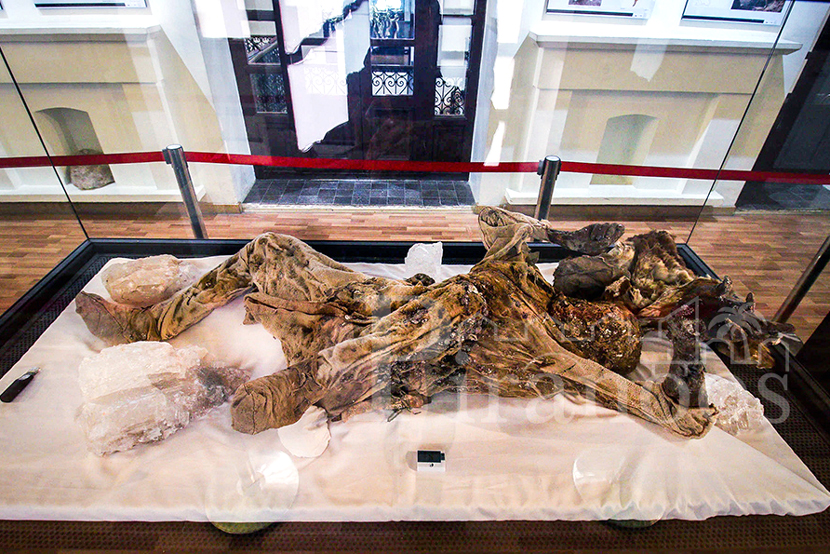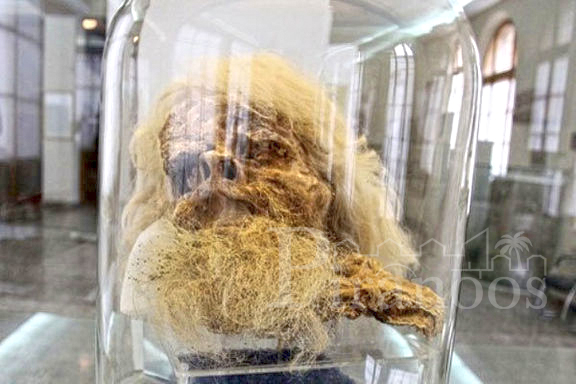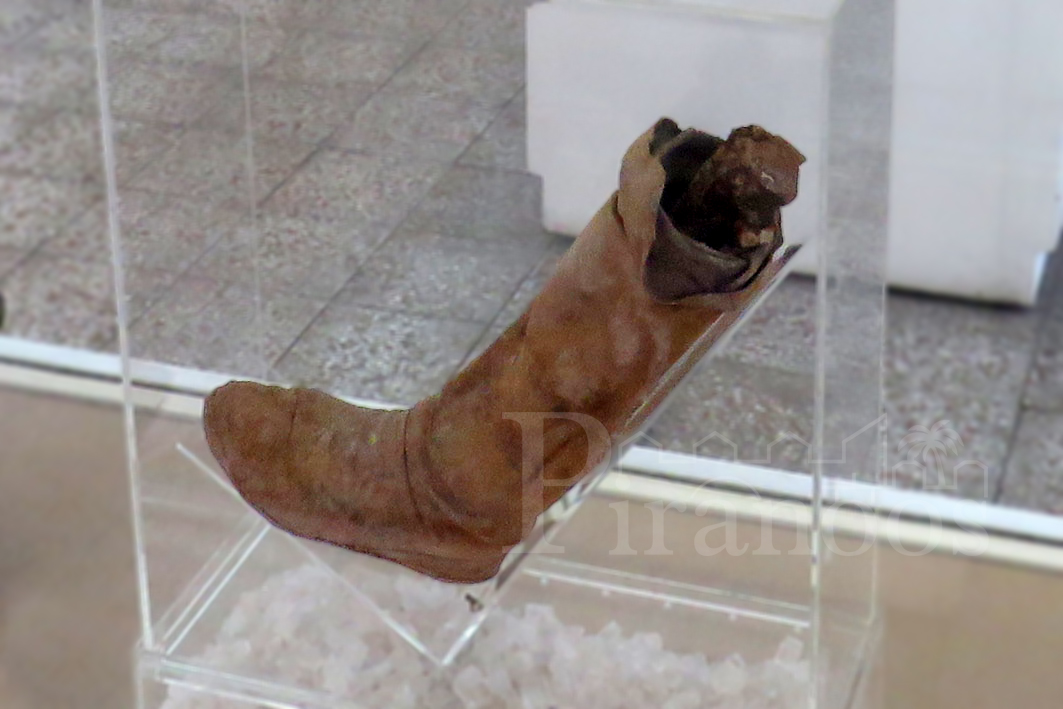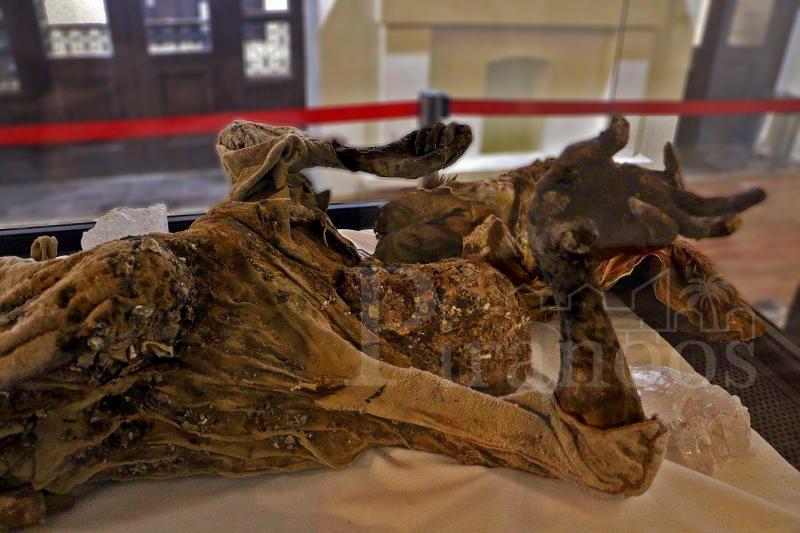The story of the lost men of history!
Salt Men is the name given to the six mummies discovered in 1993AD at the Chahr Abad salt mine in Zanjan province. Being buried in salt has caused their bodies to be mummified naturally and have remained intact for thousands of years. Three Of the salt men found at Chahr Abad mine, are from the Achaemenid period (ca. 400 BC) and two other salt men are from the late Sassanid era (ca. 400 to 600 BC). Salt men are one of the most valuable and priceless historical discoveries in the world.
 The Zolfaghari building was once the residential and office building of the Zanjan ruler and consisted of various sections such as the inner and outer sections, but at present only the outer part of it remains and it is now known as the Mahmud Khan Zulfqari mansion.
The Zolfaghari building was once the residential and office building of the Zanjan ruler and consisted of various sections such as the inner and outer sections, but at present only the outer part of it remains and it is now known as the Mahmud Khan Zulfqari mansion.
 The Zolfaghari Mansion is a historical building located in one of the old neighborhoods of Zanjan called “Alti Dalan” on the north side of Sabzeh Meydan Square and Jame Mosque. In 2008 by transfering the collections of Chahr Abad salt mine, a temporary mummy museum was established in this place and in 2010 the first archaeological museum of Zanjan province was founded in Zolfaghari building. The Zanjan Museum of Archeology has three parts and you can visit them after enjoying your tour to the salt men museum. In these sections you can also see historical items and antique objects found in the pre-historic era, and the Islamic and pre-Islamic periods.
The Zolfaghari Mansion is a historical building located in one of the old neighborhoods of Zanjan called “Alti Dalan” on the north side of Sabzeh Meydan Square and Jame Mosque. In 2008 by transfering the collections of Chahr Abad salt mine, a temporary mummy museum was established in this place and in 2010 the first archaeological museum of Zanjan province was founded in Zolfaghari building. The Zanjan Museum of Archeology has three parts and you can visit them after enjoying your tour to the salt men museum. In these sections you can also see historical items and antique objects found in the pre-historic era, and the Islamic and pre-Islamic periods.

The study of the ancient mining and excavation tools found in the mine, together with information obtained from the Carbon 14 dating showed that the mine was active in the fifth century BC (Achaemenid era) and the mine had collapsed several times causing death of a number of miners.
According to carbon 14 dating experiments, salt men number 3, 4, 5 were related to the Achaemenid period of about 2300 years ago, and salt men number 1, 2, were related to the Sassanid period, about 1500 to 1700 years ago.

This man with a foot in a leather boot had so many things beside him: a hook, a pair of short pants, three knives, a silver object, a walnut, pieces of leather rope, pieces of pottery, and a few pieces of embroidered fabric and some fragments of bone.
The second discovered mummy is a corpse of a middle-aged man about 180 cm tall who had died as a result of the mine collapse. Alongside this mummy some items such as baskets, wooden nails, and ropes were found.
The mummy body of this salt man, was discovered in pieces and in a disintegrated form. The man’s collection consists of fragments of his bones and clothing.
It is the most complete and unharmed body of salt men in the world. The mummified body belongs to a 16-year-old young boy about 170 to 175 cm tall with metal rings in his ears, with short brown hair, a metal knife in a leather sheath and two small ceramic pitchers. This natural mummy has the complete outfit, including a trouser, a long overcoat and a leather shoe.
Only the head of this poor salt man is left. The rest of the body was destroyed under large rocks during the mine collapsing.
According to the researches, the skull of this mummy belongs to the Sassanid era. The mining was stopped in 2008, and the sixth man’s body was left untouched due to lack of conservation facilities.